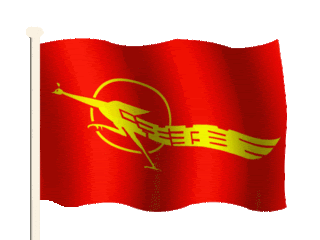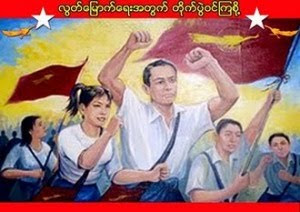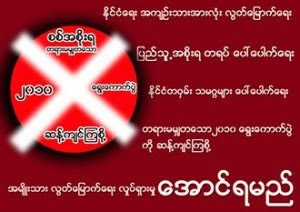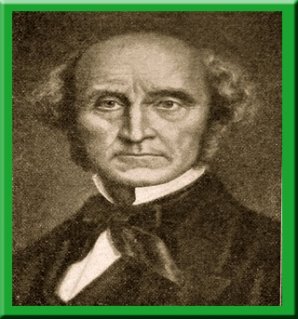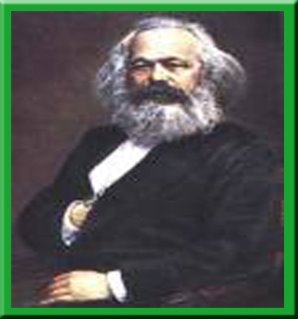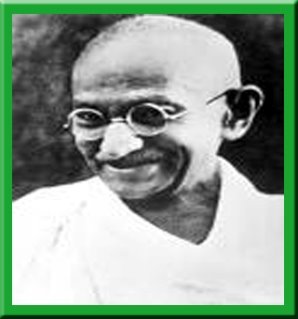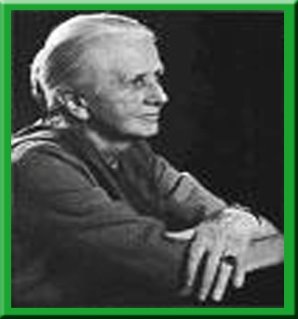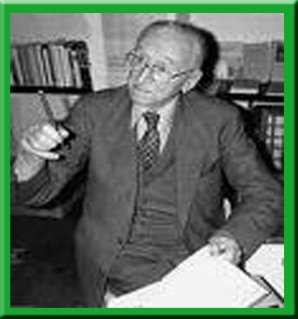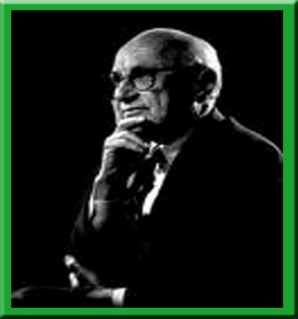Global governance can be defined as the formal and informal mechanisms for managing, regulating and controlling international activity and international systems of interaction. It could be carried in two realms, domestic and international. In the domestic realm, government defines a system of rule, backed by constitutional authority and an administrative and enforcement apparatus. In the international realm, there cannot be government or formal authority. But with the co-operation among each other and non-governmental organizations, states engage in a process of global governance. As the European Union and the UN are the two main transnational institutions of governance, it is important to identify the possibility of the extent to which democratization of the governance of global order and the process of transnational institutionalization in democratizing the governance of global order.
Specifically, Global governance is associated with the world order. The historical world order represent the Westphalian order. It codified a new set of normative principles upon which the international states system has been constructed. These principles are fourfold, including territoriality, sovereignty, autonomy and legality. Anthony McGrew (1997) claimed that states have fixed territorial boundaries to define the limits to legal jurisdiction and the scope of political authority.
Within the territory, the state or government can claim the undisputed and exclusive right to rule. According to Osiander (1994), states are also entitled to conduct their own internal and external affairs in a manner which only they are competent to decide and free from external intervention and control.
In addition, there is no legal authority beyond to state which can impose legal duties upon it or its citizens. Connolly (1991) argued that territorialization of democratic politics is predicated upon a world order based upon Westphalian norms and principles. The concept of world order embraced not only how the inter-state system is governed but also how human civilization is organized politically and economically.
For McGrew (1997), there are four traditional thoughts about democracy and world order such as realism, liberal-internationalism, radicalism and cosmopolitanism. Realism showed a sceptical attitude towards the idea that world order can be made subject to the rule of law and democratic decision making. It is based on the understanding of the law of international politics which means no powerful state has relinquished its hegemonic status without some compulsion. It claimed the ethic of global governance as power politics.
From liberal-internationalism point of view, world order is conceived as a decentralized and pluralist system (polyarchy) and geo-governance is much less a product of the exercise of hegemonic power than a product of necessity. It claimed the ethic of global governance as consensus politics. However, radicalism reviewed that the deep structure of world order is global capitalism and it is characterized by the growing globalization of production, finance and consumption, and the growing polarization between rich and poor in world society and within domestic societies. It also claimed that it requires democratization of local and global life. Its vision of world order is the rule of capital and the ethic of global governance is based on humane governance.
For cosmopolitans, world order is an order of both states and people. Brown (1995) mentioned that humanity is viewed both as a universal community and as organized political communities. Cosmopolitanism claimed that it requires transnational democracy and the ethic of global governance is based on cosmopolitan democracy.
Nevertheless, democratization of the governance of the world order has been an important debate at present with different kinds of thoughts and issues. One of the issue when thinking about the democratization of world order is the human rights. As international law governs relationships between states, a government needs to do to claim international legitimacy to keep to the norms expressed in international law while accepting the legitimacy, it is required the external recognition by other members of international society.
Hoffman (1988) pointed out that internal and external recognition offer a concept of legitimacy which relates the individual to the state in some sort of morally cogent fashion, and which related to the state to other states in the international community. He also suggested that liberal democracy and a good human rights record are necessary if a state is to achieve global legitimacy. However, the current governance of global order is based upon the principle of sovereignty that leads to the idea that all states reserve the right to decide their future without outside interference. Thus the new global order is required for governance.
Accordingly, European Union is one of the main transnational institution of governance. EU institutions undermine state-central liberal democracy. The vehicles for democratizing the EU can be differentiated into four key potential vehicles such as pan-EU institutions, national assemblies, sub-state authorities and transnational social movements.
Linklater (1996) argued that in the 'Post- Westphalian' scenario, there is no fixed quantity of democratic involvement and accountability to be shared between states, EU institutions and sub-state regions. Within a transnational context, non-state democratic institutions complement state democracy rather than undermine it, and have a positive sum rather than zero-sum effect. Thus pan-EU democracy could complement and strengthen national democracy which permits the construction of new political forms that can meet the needs in the context of advancing globalization and regionalization, as Held argues.
Another vehicle for democratizing EU is the national assemblies. As nationalisms are more Europeanized, likewise, the national assemblies. Westlake (1995) argued that across all EU national parliaments, involvement in EU policy-making has increased, mainly in two intergovernmental pillars of Foreign and Security Policy and Justice and Home Affairs. More involvement has been institutionalized in policy committees and reporting procedures. James Goodman (1997) claimed that this combination of national democracy and EU integration could be as a democratization and deepening of the EU integration process.
During the 1970s and 1980s, regional devolution was introduced in France, Spain, Italy, Portugal and Greece and sub-state authorities had become a permanent feature of democratic life in EU by the mid 1980s. Then it became a central role in the implementation of EU policies. For instance, these sub-national vehicles have developed direct foreign relations with EU institutions and have emerged as a political force at the transnational level.
These sub-state authorities have worked with the Commission to establish new cross-regional associations and cross-border association agreements gained legal recognition in 1989. This could help nationalists to become Euro-regionalists. For instance, Basque and Catalan nationalists become enthusiastic Euro-regionalists when Spain joined the EU in 1986. Lindsay (1991) claimed that sub-state regionalists and nationalists have used integration to imbue their message with an internationalist vision.
Furthermore, these sub-state pressures are complemented by increased involvement in transnational social movements. These are capable of posing a democratic alternative to increased transnational economic integration. Sakamaoto (1996) argued that many social movements offer a means of linking with democratizing pressures beyond the immediate EU region which embodied in a range of proactive global movements then challenge the social and developmental costs of economic globalization. These social movements include environmental groups (European Environmental Protection Agency), labour and trade union groups (European Trade Union Confederation), women groups (European Network of Women), lesbian and gay movement, anti-racist movements and pan-European security organizations.
Most these movements challenge national divisions both in the EU and beyond it. Generally these represent both participatory and democratic and forced to the margins of EU decision-making. Accordingly, all social movements are orientated to transnational ideals that have an inherent mobilizing potential at the EU level. Tarrow (1994) concluded that a dialectical relationship has emerged between bureaucratic and business elites and social movement challengers and these challengers are powerful vehicles for democracy in an increasingly transnationalized EU.
Moreover, Goodman (1997) argued that re-democratization beyond the nation- state, to a new Cosmopolitan democracy emerged out of transnational mobilization and the working of pan-EU institutions, national assemblies, sub-state authorities and social movements point the way to a reconstituted democracy that flows through and beyond the state to match the transnational constituencies emerged from increased globalization. So it could be claimed that although there has been some means of democratizing the governance of global order for EU as transnational institutions, these are in the way to be effective and adequate means, not merely at present and mostly it seeks to strengthen regional economies only.
Another dimension to tale an example as one of the transnational institutions is the United Nations (UN). The growth of the UN system since 1945 has a gradual extension of international co-operation and a degree of international authority over a wide range of social, scientific and economic activities. The UN was created before the end of the Second World War and it was prior to the first use of nuclear arms and the Cold War. It was not a supra-national authority or world government and it was inhibited in the filed of international peace and security by Cold War tensions and the paralysis of the infamous veto arrangements in the Security Council.
The veto represent the collision between democratic politics (the will of the majority of members) and power politics (the will of the five permanent members). Despite the doctrine of state sovereignty encourage the one-member-one-vote principle, the UN and the World Bank both depart from this principle in practice.
According to Archer, inter-governmental organizations may operate as actors, in their own right or as an arena or forum in which members negotiated and/ or as instruments of the member-state policies. The status of international organizations as actors is deceptive. Although some other agencies, IGOs, etc. play the primary actors in international relations, the UN and its related agencies (UNICEF and UNHCR) is funded by the membership subscriptions and voluntary donations of the member states and its policies and decisions are created by the votes of its members. Moreover, there was no standing force under the command of the Secretary General and all UN Peacekeeping forces are created ad hoc.
Besides, the UN General Assembly was a key forum for legitimizing the principles of self-determination. Vogler (1995) claimed that the recognition and protection of the global commons such as Antarctica, Outer Space, the Oceans and the Ocean floors beyond the limits of national jurisdiction, has been promoted through a series of multi-lateral treaties which uphold the concept of the common heritage of mankind. Mark Imber (1997) added that campaigns against nuclear weapons proliferation and against apartheid and the promotion of environmental protection and sustainable development have been increased through the UN General Assembly and its special conferences.
However, in the politics of global governance, NGOs are more familiar to the public. For instance, NGOs such as Green Peace International, WWF and Amnesty International are more aware to public rather the UN and its agencies such as UN Disaster Relief organization, the Convention on Trade in endangered species or the UN Human Rights Committees. NGOs recreate the associations of Civil Society on a global or transnational basis. However, governments that oppress, torture and conduct genocide against their own people within the protection of their sovereign boundaries are not to embrace NGO participation in the organs of international government. Even within the UN, member states defend and advance their bargaining positions within international organizations by the conventional standard of national interests, executive privileges and confidentiality.
Accordingly, all traditions are not satisfied with the current state of UN system for global governance and called to reform. Obviously, the democratic reform of the UN is generally promoted by the middle- ranking members with a long tradition of commitment, service and sacrifice to Charter Principles and these include Canada, Norway, Sweden and the Netherlands.
With the creation of the commission on Sustainable Development (CSD), the UN has improved funding for the Global Environmental Facility (GEF). It was co-operated by the World Bank, UNDP and charged with the task of resourcing sustainable development projects. These are different visions of reform for UN but all sit uneasily with the veto and financial powers of the hegemonic states.
In conclusion, means of democratizing the governance of global order do not only rely on the formal transnational institutions such as the EU and the UN because they cannot create effective and adequate means.
Khin Ma Ma Myo (2004)
References
Brown, C. (1995) 'International Political Theory and the idea of world community', in Booth, K. and Smith, S. (eds) International Relations Theory Today, Cambridge, Polity Press
Connolly, W.E. (1991) 'Democracy and territoriality', Millennium, vol. 20, no.3, pp. 463- 84
Goodman, J. (1997) 'The European Union: reconstituting democracy beyond the nation-state', in McGrew, A. (ed.) The Transformation of Democracy, Cambridge, Polity Press
Held, F. (1995) Democracy and Global Order, Cambridge, Polity Press
Hoffmann, J. (1995) Beyond the State, Cambridge, Polity Press
Imber, M. (1989) USA, ILO, UNESCO and IAEA, London, Macmillan
Linklater, A. (1996) 'Citizenship and sovereignty in the post-Westphalian state', European Journal of International Relations, vol.2, no.1, pp. 77-103
Lindsay, I. (1991) 'The SNP and the lure of Europe', in Gallagher, T. (ed.) Nationalism in the Nineties, Edinburgh, Polygon, pp. 84-102
McGrew, A. (1997) 'Democracy beyond borders? Globalization and the reconstruction of democratic theory and practice', in McGrew, A. (ed.) The Transformation of Democracy, Cambridge, Polity Press
Sakamoto, Y. (1996) 'Democratization, social movements and world order', in R. Cox et. al. (eds.) International Political Economy: Understanding Global Disorder, London, Zed, pp. 129-44
Tarrow, S. (1994) Power in Movement: Social Movements, Collective Action and Politics, Cambridge, Cambridge University Press
Westlake, M. (1995) 'The European Parliament, the national parliaments and the 1996 intergovernmental conference', Political Quarterly, vol.3, pp. 59-73
Vogler, J. (1995) The global Commons: A Regime Analysis, London, Wiley
ဘေလာ့ လိပ္စာသစ္သို႕ ေျပာင္းေရႊ႕ျခင္း
(၂၀၀၇) ခုႏွစ္မွစ၍ ဘေလာ့စာမ်က္ႏွာအား ဖြင့္လွစ္ခဲ့ရာ ဖတ္ရွဳအားေပးၾကေသာ စာဖတ္ပရိသတ္အေပါင္းအား အထူးပင္ ေက်းဇူးတင္ရွိပါသည္။
ယခုအခါတြင္ ဘေလာ့ကို ဖြင့္ရန္ အခ်ိန္ၾကာျမင့္မွဳမ်ား ရွိေနေၾကာင္း၊ စာဖတ္သူအခ်ိဳ႕မွ အေၾကာင္းၾကားလာပါသျဖင့္ www.khinmamamyo.info တြင္ စာမ်က္ႏွာသစ္ကို ဖြင့္လွစ္ထားပါသည္။
စာမ်က္ႏွာသစ္တြင္ အခ်ိဳ႕ေသာ စစ္ေရး၊ ႏိုင္ငံေရး၊ စီးပြားေရး၊ ပညာေရး၊ က်န္းမာေရးဆိုင္ရာ ေဆာင္ပါးမ်ားႏွင့္ ရသစာစုမ်ား (ႏွစ္ရာေက်ာ္ခန္႕)ကိုလည္း က႑မ်ားခြဲ၍ ျပန္လည္ေဖာ္ျပထားပါသည္။
ယခုဘေလာ့စာမ်က္ႏွာကို ဆက္လက္ထားရွိထားမည္ျဖစ္ေသာ္လည္း ယေန႕မွစ၍ ပို႕စ္အသစ္မ်ား ထပ္မံ တင္ေတာ့မည္ မဟုတ္ပါေၾကာင္းႏွင့္ ပို႕စ္အသစ္မ်ားကို စာမ်က္ႏွာသစ္တြင္သာ တင္ေတာ့မည္ျဖစ္ပါေၾကာင္း ေလးစားစြာ အသိေပး အေၾကာင္းၾကားပါသည္။
စာမ်က္ႏွာသစ္သို႕ အလည္လာေရာက္ပါရန္ကိုလဲ လွိဳက္လွဲစြာ ဖိတ္ေခၚအပ္ပါသည္။
ေလးစားစြာျဖင့္
ခင္မမမ်ိဳး (၁၇၊ ၁၀၊ ၂၀၁၁)
www.khinmamamyo.info
ယခုအခါတြင္ ဘေလာ့ကို ဖြင့္ရန္ အခ်ိန္ၾကာျမင့္မွဳမ်ား ရွိေနေၾကာင္း၊ စာဖတ္သူအခ်ိဳ႕မွ အေၾကာင္းၾကားလာပါသျဖင့္ www.khinmamamyo.info တြင္ စာမ်က္ႏွာသစ္ကို ဖြင့္လွစ္ထားပါသည္။
စာမ်က္ႏွာသစ္တြင္ အခ်ိဳ႕ေသာ စစ္ေရး၊ ႏိုင္ငံေရး၊ စီးပြားေရး၊ ပညာေရး၊ က်န္းမာေရးဆိုင္ရာ ေဆာင္ပါးမ်ားႏွင့္ ရသစာစုမ်ား (ႏွစ္ရာေက်ာ္ခန္႕)ကိုလည္း က႑မ်ားခြဲ၍ ျပန္လည္ေဖာ္ျပထားပါသည္။
ယခုဘေလာ့စာမ်က္ႏွာကို ဆက္လက္ထားရွိထားမည္ျဖစ္ေသာ္လည္း ယေန႕မွစ၍ ပို႕စ္အသစ္မ်ား ထပ္မံ တင္ေတာ့မည္ မဟုတ္ပါေၾကာင္းႏွင့္ ပို႕စ္အသစ္မ်ားကို စာမ်က္ႏွာသစ္တြင္သာ တင္ေတာ့မည္ျဖစ္ပါေၾကာင္း ေလးစားစြာ အသိေပး အေၾကာင္းၾကားပါသည္။
စာမ်က္ႏွာသစ္သို႕ အလည္လာေရာက္ပါရန္ကိုလဲ လွိဳက္လွဲစြာ ဖိတ္ေခၚအပ္ပါသည္။
ေလးစားစြာျဖင့္
ခင္မမမ်ိဳး (၁၇၊ ၁၀၊ ၂၀၁၁)
www.khinmamamyo.info
The Governance of Global Order (Essay)
Saturday, September 4, 2010
Posted by
Khin Ma Ma Myo
Labels:
အက္ေဆးမ်ား

